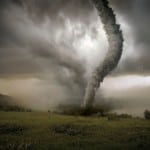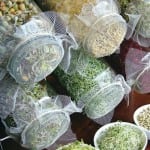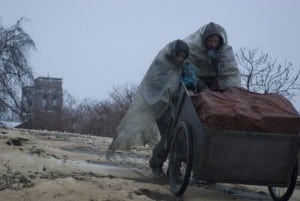Guest Article Contribution by Alex K.
Food is a necessity of life that can bring enjoyment in even the worst of times. It nourishes both the body and the soul. As such, there are many aspects to food besides nutrition.
Risk management for food tends to fall into acute and chronic categories. With acute, it is about securing your next meal. Natural disasters, social unrest, etc. are examples in which food distribution breaks down and food resources are scarce. A chronic condition is more like the great depression, victory gardens, etc. where food resources are available, but only basic commodities can be obtained. So, how does gardening fit in with risk management?
Planning Your Food Strategy
First, one should decide what risk they feel needs to be addressed. In an acute situation, one tends to depend on stored food. This preparation is achieved via purchasing food stores or creating a surplus from preserving food from the garden (e.g. – canning, pickling, drying, fermenting, freezing, etc. ).
In a chronic situation, one needs to supplement the commodities they can obtain. During the Soviet Union era, small acre “Dacha” supplemented the few basic commodities that could be purchased. In America during WWII, lawns changed into victory gardens to take advantage of the growing season. With either the Dacha or Victory Garden, people would get together to harvest and can, pickle, dry, etc. any surplus that was produced. There tended to be a lot of sharing going on. The Russian Dacha and the American victory garden were people helping people and often was often a family affair. Today in America you can see some aspects of this in community gardens.
Today, I see many people purchasing collections of heirloom seeds under the assumption that these can be used to feed themselves. Unfortunately, they may not be developing a valid food risk management plan. So, let us look at some scenarios. This will help frame the role of gardening in a given scenario.
 Natural Disaster
Natural Disaster
In a number of natural disaster situations, a garden is likely to be damaged. However, if the garden is actively growing, you may be able to obtain a partial harvest. Natural disasters fit primarily into the acute category: stored food or rations provided from emergency workers will be of your primary concern. Although not a primary concern, having a nice functional herb garden can make living off stored rations a lot more enjoyable. It is also likely that some items harvested from an active garden can add to the variety of the meals.
 Pandemic or extended emergency
Pandemic or extended emergency
In a pandemic or situation where travel will be restricted for a prolonged period, the situation will again present itself as an acute category. Likewise, a garden can play a role in creating a surplus of food that can be stored to add to the overall food mix. One additional point to consider vs. the acute situation of a natural disaster is that there is now value in growing sprouts and micro greens due to the extended timeframe. Sprouts are just as the name suggests – sprouted seeds. They are easy to grow and can provide valuable nutrients to a restricted diet. Micro greens are generally seeds that have produced their first true leaves. Micro greens will not be as high in calories, but are nutrient rich.
Economic or chronic event
This is the case for the Victory Garden or the Dacha to supplement one’s available food. This will encompass more high value crops such as fresh fruits, vegetables, herbs. These crops preserved as jams, pickles, and preserves will similarly be in high demand. The focus of your garden will provide a means of saving money and increasing the enjoyment of meals. Commodities like potatoes, onions, corn etc. will most likely still be available, so they may not be a major focus.
 Black Swan Event (SHTF)
Black Swan Event (SHTF)
In any number of major SHTF predictions, it is unknown if additional food resources can be obtained in the long term. The situation will be primarily an acute category, with chronic concerns setting in later. However, what happens when the stored food runs out? I remember an old trapper I knew when I was a kid in Alaska. Lloyd used to tell me stories of his prospecting days back when Alaska was a territory not a state. One thing he pointed out in several stories was if you need 8 months’ worth of food to make it through winter and you only have 6 months, you are not going to make it. This was demonstrated by several dead prospector stories. A SHTF event is a game changer in many ways: first the commodities that are high in fats and starches that one purchased for stored food will no longer be available. So, the question becomes where are the calories going to come from? On many subsistence farms, tuber crops play an important role as a source of starches. In the Midwest, corn has played this historic role. In other places, grains have been the key. The point is that some major source of carbohydrates will be required. The next item will be protein, because it is likely some source of vegetable protein will be required to supplement any sources of protein that can be hunted or foraged.
Now remember this is a “come as you are” party, so all you have is what you have. In many situations like this, you find choices of planting a crop or eating the seeds. Will your stored food carry you to next harvest? If you have seeds saved, how much can you actually plant and harvest? Of what you harvest, how much do you need to save for the next planting? It is likely that if you have been gardening small scale, you will have some plant that you only have limited seeds available. There are many decisions in a SHTF garden scenario that will require several discussions to cover.
I hope this provides a framework to begin discussing gardening. I have found that people can have greatly different view on this subject. Many times these views are different because the people are looking at different scenarios. So as I go forward with discussions on gardening I will try to put the information within the scenario it may be addressing. On many topics related to gardening, you will find multiple possible solutions or options. A key to preparedness is knowledge of what your options are. Hopefully, with feedback from others, some options can be uncovered in future articles on gardening.







